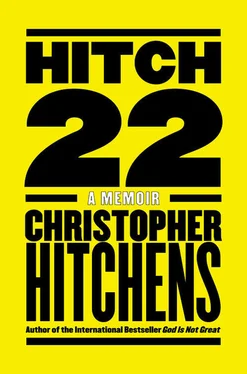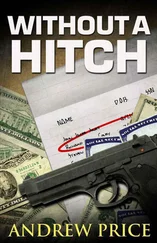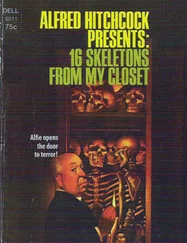He must have known that he had some kind of a Red for a son, but he seemed to manage to talk to me as if I still had elementary Saxon common sense, and I was very affected when I discovered that, by stealth, to his small circle of friends, he was giving Christmas gift subscriptions to my pinko magazine, the New Statesman . “Rather interesting piece by my son in that last issue… don’t know if you noticed it.” Did this make up for my failures as a sportsman? I doubt it, but then I had to ask myself if I had chosen the field of journalism to compensate for other shortcomings on the field of valor. On this point, too, he administered more of a shock to me than he can have intended. After I had returned from a visit to Lebanon in the mid-1970s, and a trip to the war zone in the south of that country that I had later written up for the magazine, I was sitting at my desk one afternoon when the telephone rang and it was the Commander. This occurrence was rare enough in itself to make me worry that something might be amiss. But he was calling to say that he had admired my article and, while I was still searching for the words in which to respond, he in effect doubled the stakes by saying that he thought it had been “rather brave” of me to go there. And then, as I grappled with that rather vertiginous development, he said goodbye and replaced the receiver. A man of few words, as I believe I have said.
At the time, I couldn’t make any definite connection between my own visits to the places where he’d been stationed, from the South Atlantic to the Eastern Mediterranean to the Indian Ocean, and the Commander’s earlier presence there. I myself could not picture how these one-time colonies must have looked when viewed through a massive ship’s gunsight, or from the deck of a superbly engineered war-machine. In truth, when in Cyprus or in Palestine or southern Africa or elsewhere, I generally felt myself so much in sympathy with those who had resisted British rule that I thought it better for the Commander and myself to avoid the subject. If you had asked me then about the likelihood of the Union Jack flying again over Basra or the Khyber Pass, I would have both mocked and scorned the idea. Yet when the Argentine fascist junta invaded the Falkland Islands in the early days of 1982, just after I had immigrated to New York, I felt a sudden stab of partisanship for the Royal Navy as it sailed out to reverse the outcome. I even wrote to the Commander in fairly gung-ho terms, hoping for a hint of common ground. His response surprised and even slightly depressed me. “I don’t know if it frightens the enemy,” he wrote about Britain’s last war-footing fleet as it found its inexorable way to the South Atlantic, “but it certainly frightens me.” This slightly hackneyed borrowing, from what the Duke of Wellington had said of his “infamous army” of drunken and homicidal riffraff on the eve of Waterloo, left me feeling flat. (“Waterlooville” was the name of a suburb of Portsmouth, and there was a celebrated pub called “The Heroes of Waterlooville” whose inn sign showed the redcoats smashing Bonaparte’s “Old Guard,” so he had to know that I would find his historical allusion slightly trite.)
On reflection, though, I am able to see what I did learn from my father. I had once thought that he’d helped me understand the Tory mentality, all the better to combat and repudiate it. And in that respect he was greatly if accidentally instructive. But over the longer stretch, I have come to realize that he taught me—without ever intending to—what it is to feel disappointed and betrayed by your “own” side. He had a certain idea of England, insular to a degree, and conservative for sure but not always, or not necessarily, reactionary. In this England, patient merit would take precedence over the insolence of office, and people who earned their money would be accorded more respect than people who merely had it or “made” it. The antiquity and tranquility of the landscape and the coastline would likewise have earned their share of deference: those who wanted to uproot or to “develop” an area would have to make a case for change rather than be permitted the glib and clever assumption that change was a good thing in itself.
And yet the postwar Conservative Party had become the agent of hectic and greedy modernistic metamorphosis: tearing up the old railway lines and cutting great new swaths of motorway through hill and forest and dale; licensing the commercial principle in everything from television to elections; contemptuous of tradition; handing the skylines and harbors of our grand and blitzed old seaports to builders and speculators who swiftly made them unrecognizable to the veterans who had made those place names honored and famous. And this was just in the time of Harold Macmillan. If the Commander had lived to see the full impact of Thatcherism, he would have felt that there was almost nothing left worth fighting for, or rather having fought for.
I have so few vivid memories of him that one may do duty for many: we had gone as a family into Portsmouth for the opening night of The Longest Day . This epic film about the D-Day landings would, I knew from experience, be almost certain to annoy or disappoint the Commander in at least one of two ways. The movie would either understate the role of Britain in the historic storming of the beaches of occupied Europe (reversing an ancient verdict by having us invade Normandy) or it would underplay the part of the Royal Navy in this hinge event. In the event, it was grudgingly agreed in the car on the way home that fairness had at least been attempted. There were a few laughs at the expense of “the Yanks and their gadgets,” and a few reminiscences of the Dieppe raid that had raised the curtain on Normandy: a hellish fiasco in which the Commander had helped land the doomed Canadian forces on bullet-swept beaches, with Lord Mountbatten (an especially vain member of the British Royal Family) as part of his ship’s company. But this effort at good cheer was all aimed at erasing what had occurred before the cinema’s curtains had parted. My father had come back from the box office with the news that only the most absurdly expensive or the most abjectly cheap seats were now available. He looked quite put out at this: Didn’t the throng for this film understand that he’d practically been there? Yvonne attempted mollification. “Who’s snapped up the tickets then? ‘The affluent society,’ I suppose?” “You have that right,” said the Commander with bitterness. He’d done so much for the empire and it had done so little for him in return. If I had had my way, he would have been respectfully escorted to a front-row seat, or perhaps a box.
But I also admired him for his lack of guile and his dislike for anything that was surreptitious or underhand. While in the Royal Navy, he had indignantly refused any advances from the Freemasons, even though this mafia of the mediocre might, had he but joined them, have swung the difference between being promoted and otherwise. One loyalty was enough for him. His candor and modesty once almost caused me to weep. He told of a senior officer who had asked him if he’d come and help out at a cocktail party on the base. It was explained to him in confidence by his superior that the event was meant to soak up all the bores who hadn’t been invited to anything yet. “Thank you, sir,” he had replied. “But I believe I have already received my invitation.” Yvonne’s face, when he told this story in company, was a frozen study that I never forgot.
The Commander lost his last proper job in a similarly naïve way, feeling himself obliged to tell the boys’ school in Oxford—the place which had furnished his last and only economic security—that he had reached the statutory retirement age. “Honestly, Eric,” the somewhat shambolic headmaster later informed me he had told him, “you didn’t have to do that. Nobody was going to make anything of it. Nobody had ever even thought of asking. But now that you have bloody well told us, the Board of Governors has no legal option but to give you a gold watch or something and let you go.” And so he went, quietly and uncomplainingly as ever. [4] Strangely, though, the matter of his age was also the only thing in which I ever caught him out in a petty dishonesty. He used to tell us that he had been born in 1912. My brother, Peter, and I were both amateur numismatists in boyhood, and these were the days when hoop-sized pennies from the Victorian and Edwardian era could still turn up in your small change. If we found a 1912 coin, we would show him, and then proudly hoard and sometimes even mount and display it. It was somehow deflating to discover—as he must have known we would—that he had been born in 1909. I still cannot be sure why he practiced this uncharacteristic deception: conceivably to attenuate the difference in years between himself and Yvonne. But she could not possibly have been fooled, as his sons pointlessly were.
In his last years, in enforced semi-retirement, he did some very small-time bookkeeping work for a medical man of sorts, in the out-of-the-way Oxfordshire village of Sutton Courtenay, where George Orwell is buried and where, when I once visited, the vicar led me to the spot and then said: “Oh, sorry: wrong grave. This one says ‘Eric Blair.’ ”
Читать дальше











